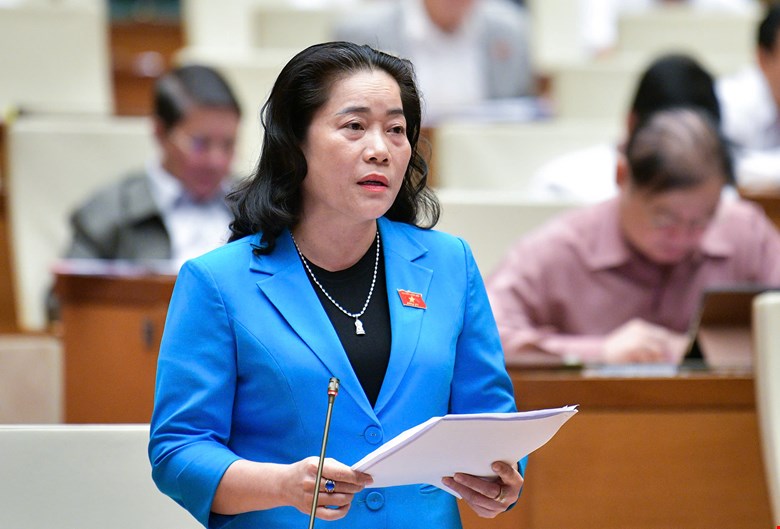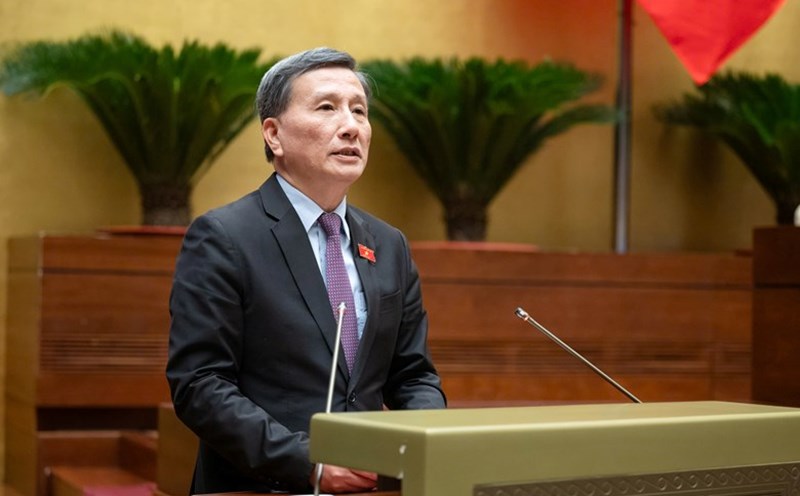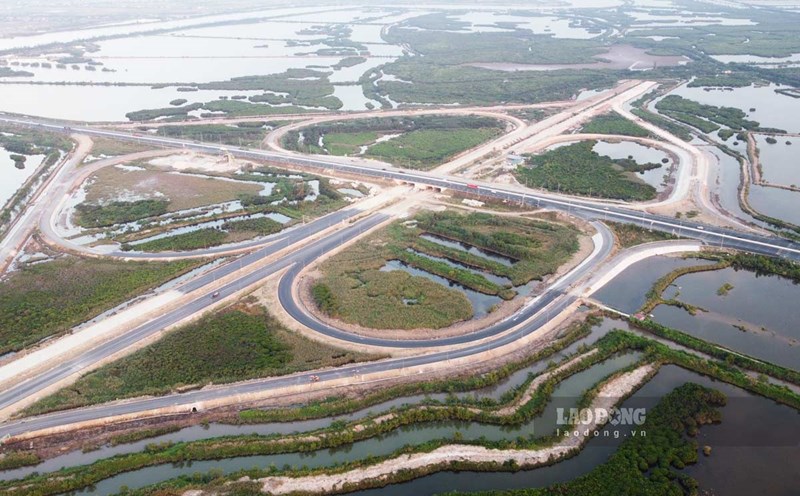On November 23, the National Assembly discussed in groups the draft Law on Digital Technology Industry.
During the discussion in groups, many delegates agreed that the draft law should devote a chapter to AI. However, delegates said that there needs to be a control mechanism to avoid risks to humanity.
Delegate Pham Trong Nghia (Lang Son Delegation) said that the provisions on AI in Chapter VI of the draft law are extremely necessary and this is a progressive provision.
According to this delegate, in early 2024, the world forum released a report on global risks that will occur in the next 10 years. Through a survey of the 5 groups of the most risky to humanity, there are the environmental and technological groups. And in the leading technology group, there is AI out of control.
“Currently, businesses, for the purpose of profit and brand affirmation, come up with smarter robots to compete with other businesses.
While the legal framework in the region and internationally, we have only built a code of ethics for associations and groups. There is no binding convention or treaty on controlling AI products that pose risks to humanity" - delegate Pham Trong Nghia said.
According to this delegate, the draft law has added some principles, but the risk management is still general, not specific, and not strong enough. The draft law mainly talks about promoting the development of AI.
“In my opinion, there needs to be a mechanism to control AI. Because when there is a legal corridor, we allow the use of testing and control mechanisms. Allowing the development of science and technology, the market will decide to promote the development of AI, at that time the role of the State is to focus on control, control is very important” - said the delegate of Lang Son delegation.
This delegate said that there are many predictions that the development of AI is one of the causes of human extinction if we do not have a strong control mechanism or encourage domestic and foreign businesses to invest in AI development.

Sharing this view, delegate Le Thi Thanh Lam (Hau Giang Delegation) said that regarding risk management for AI systems, Clause 1, Article 65 of the draft stipulates that AI systems are capable of causing problems that affect the health, safety, rights and legitimate interests of organizations and individuals.
However, this clause 1 has not yet provided a specific assessment of what constitutes a risk, the existence of impacts on the health, safety, rights and legitimate interests of organizations and individuals. In addition, it has not yet provided a specific limit on the potential impact, the amount of calculation... The definition of a high-risk AI system as stipulated above is not specific.
“It is necessary to define more clearly the criteria for identifying high-risk AI systems and should only be limited to some advanced AI or cutting-edge AI systems. Always refer to international regulations on standards to apply them to management more easily,” emphasized delegate Le Thi Thanh Lam.
Regarding this issue, previously in the examination of the proposal on the Digital Technology Industry Law project, Chairman of the Committee for Science, Technology and Environment Le Quang Huy said that there were opinions that comprehensive research was needed to build a separate law on AI in Vietnam.
The Committee on Science, Technology and Environment believes that at this time, Vietnam needs to have a legal basis to regulate AI to develop the strengths and advantages of AI while limiting adverse impacts in research, application and development of AI technology.
It is recommended to study and supplement regulations to limit risks and impacts of AI technology on economic and social life such as ethical principles; research and develop AI created by Vietnam.











